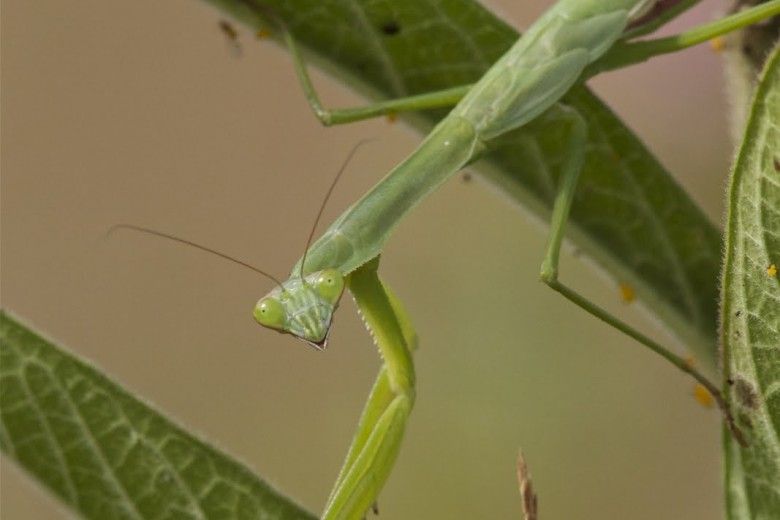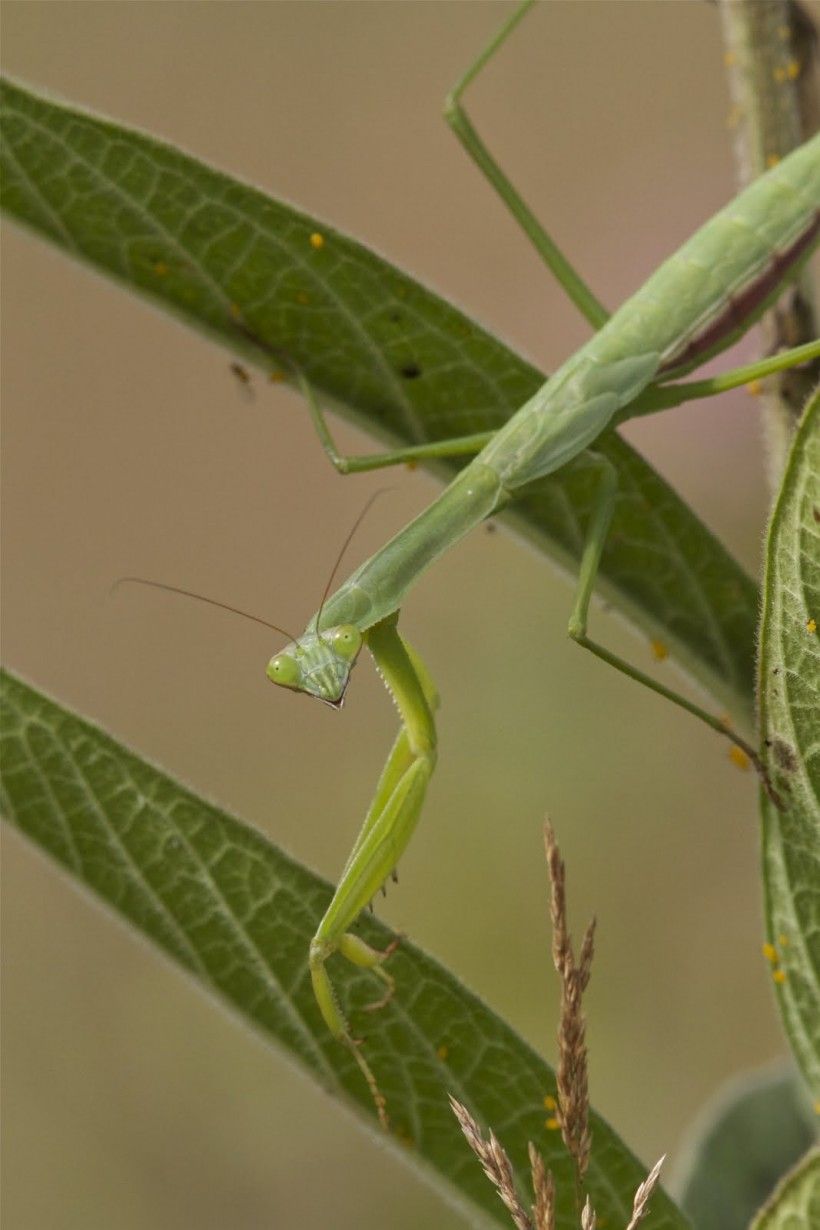Praying Mantis- Natural Pest Control

There are more than 2,200 species of mantises found throughout the world.

Mantises use their grasping, spiked forelegs to capture and hold prey. They have very large eyes as they rely heavily on their vision to hunt prey and thus are most active during daylight hours. Their coloration acts as camouflage and allows them to blend in with surrounding foliage while they sit patiently and wait for prey to appear.
Praying mantises are revered by organic gardeners for their ability to consume other insects. Garden supply stores sell praying mantis egg cases that can be placed in landscaping or gardens. When the nymphs hatch, the feasting begins.